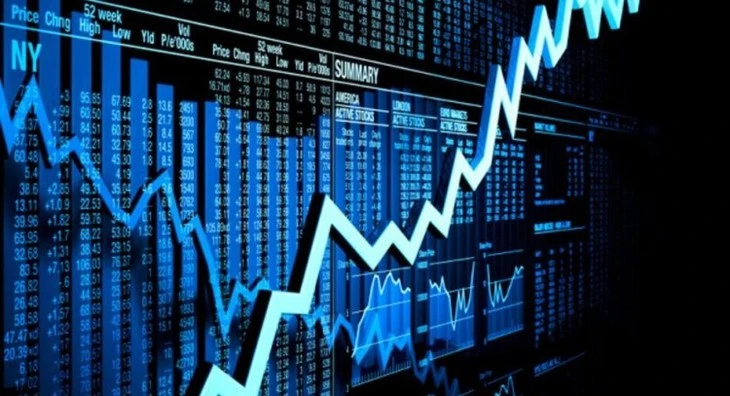
Mounting confidence
There is still a lot of concern in the stock market, however, on whether to buy or not. The shock incident during the Tet Lunar New Year has led to some uncertainty, though the sudden fall at the end of January did not cause much panic among most investors. The reasons for a sharp fall are many, but the most important is that profits in 2020 were very high, and partial market return was too low. However, the good news is that after a sharp decline, confidence has increased once again and new investors are showing renewed interest.
Immediately before the Tet Lunar New Year holidays began, the stock market received a surprise boost of 86,107 new personal accounts in January, setting a new record. This is an unprecedented high record in the history of the stock market, and clearly reflects the increased public interest in investing in stocks. This new investor force of tens of thousands of new comers, along with nearly 393,000 new investors who joined in 2020, will be the most powerful means of propaganda for future investments in the stock market.
The sudden and unexpected outbreak of another Covid-19 threat in the country in just the first week of the Tet Lunar New Year holiday season, along with huge fluctuations in the international market, are being seen as risky, but neither of these two factors will have too many bad development impacts. Even though the number of new virus cases have increased, the areas under major pandemic are well under control. The severity of the disease is still less than what it was in 2020. During the Tet holiday season, world stocks were on new historic high with the US S&P 500 index rising nearly 6% since early February. Currently, there is no bad news, only expectations, which is a very positive sign.
International investors have good words for Vietnam's stock market of 2021. Regional investment director of Global Wealth Management said on the US TV channel CNBC that Vietnam is their favorite market with an economy that has huge potential, and Vietnam's stock market is expected to surpass that of the Philippines in capitalization by mid-2021. Peter Monson, fund manager at Nikko Asset Management in Singapore, also told Bloomberg that Asia is in a stronger position than it was pre-pandemic owing mainly to higher government budget, orientation targets, better stimulus packages, and an increase in global demand for exports, besides the fact that Asia is much cheaper than other markets, including the US.
Although the January correction period caused some investors to lose money in the short term, the results were positive. Many stocks declined to help Vietnam's stock market become cheaper when the P/E ratio of the VN Index dropped from a peak by about 20 times to about 17 times as of 9 February. Meanwhile, many estimates of professional investment organizations believe that the profit of listed companies in 2021 will have a higher growth rate. For example, Ban Viet Securities predicted that the VN Index EPS in 2021 would increase by 30% compared to 2020; VNDirect is expected to increase by 22% to 24% in the base scenario; BSC predicts an increase of 22%; and Mirae Asset predicts a 19% increase. This means the market's growth will be even higher, so the current price level is relatively attractive.
Liquidity Boom
The stock market saw a liquidity boom in 2020 because of the entry of thousands of F0 investors, influenced also by low-interest rates. Although the basic valuation factor of the 2021 market is quite positive, the huge cash flow in the market is still the dominating factor. The main reason why the interest rate level remained at a record low was due to stagnant capital flow in the banking system. This was due to the fact that capital requirement is too low as businesses do not want capital as they cannot expand production, or because their credit ability is too poor for them to borrow further.
How long this will continue to be a dominant reason is as yet uncertain, and no one can predict whether it will last for a short time or is here to stay for a long period. Only if economic growth and activity intensifies will capital need also increase. A very remarkable point in 2020 was that credit growth was not bad, and stayed at about 12.13%, but GDP growth was only 2.91%. In the past, comparable credit growth has been associated with better GDP growth. In 2019, credit increased by 12.1%, and GDP increased by 7.02%; in 2018, credit increased by 13.98% and GDP increased by 7.08%; in 2017, credit increased by 18.17% and GDP increased by 6.81%.
It should be emphasized that the credit growth in 2020, accumulating from a much larger credit level in previous years, did not match the GDP growth, which also means that the amount of capital has not gone into production and businesses, like in previous years. Therefore, if capital flow is adjusted to move in the right places, it will also mean that capital flow into asset markets may decrease.
At the beginning of February, before the Tet Lunar New Year, the interbank interest rate had surged, with an average overnight interest rate of 2.86%, as of 8 February and a one-week term to 2.3%. This interest rate is equivalent to the same period in 2020, only slightly lower than the same period in 2019 (see chart). This volatility is considered seasonal as the liquidity demand increases during Tet Lunar New Year and is expected to decrease soon after. However, if the interbank interest rate does not decrease next week, the low-interest rate level may end. In February 2019, when there was no Covid-19 factor, the overnight interest rate was at about 3% to 4.5%, and in February 2020, without the Covid-19 factor, it was in the range of 2% to 3%.




















